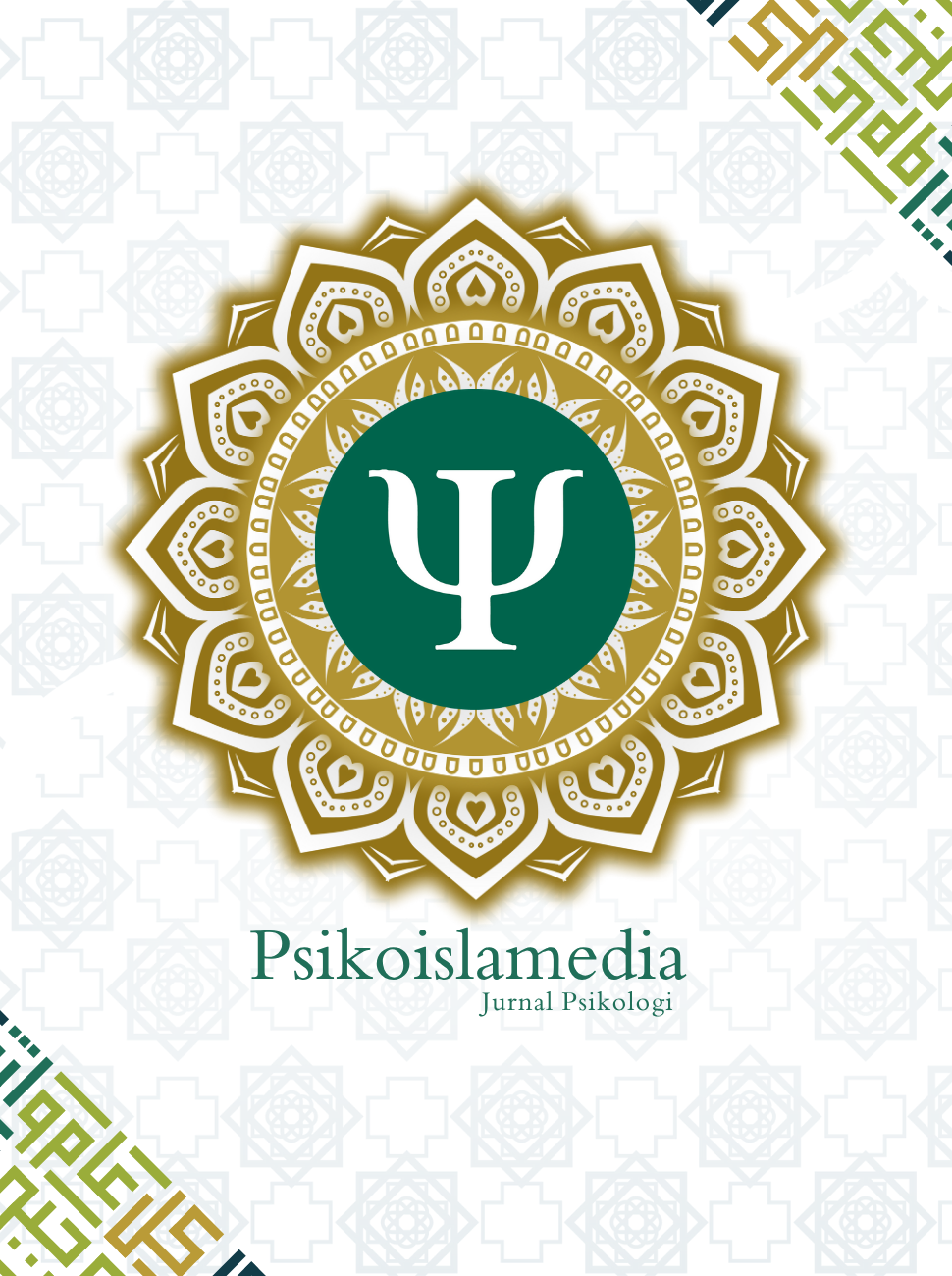ELEMEN-ELEMEN PSIKOLOGI DALAM ALQURAN STUDI TENTANG NAFS, ‘AQL, QALB, RUH, DAN FITRAH
DOI:
https://doi.org/10.22373/psikoislamedia.v4i1.6350Keywords:
Elements, Psychology, Qur'anAbstract
This paper describes the elements in the Noble Qur'an, psychology term that will be scrutinized is the nafs ' aql, qalb, ruh and fitrah. By using the library study results showed that nafs was the side that shows human beings concerning the potential good and bad. While 'aql is a power to acquire knowledge therefore has the power to make sense of abstract objects that captured the five senses. As for the definition of a substance is the qalb smooth functioning and getting to know the nature of things as well as have the ability to reflect. Ruh make man has servant of God purity. Tend to things eternal, peace and quiet. Fitrah is innate for religious and believe in God, with an innate human potential has been given more to believe in God, but over time people became disobedient to God because the environment shape it. The fifth element of psychology to be able to walk properly and is functioning to its fullest potential according to their respective wants always always cleaned and maintained from various forms of disobedience. This concept is the one who makes the difference between Islamic psychology with conventional psychology.
References
Al-Najjar, Amin. (2000). Ilmu Jiwa dalam Tasawuf, Terj. Hasan Abrori. Jakarta: Pustaka Azam.
Assegaf, Abdurrahman. (2011). Filsafat Pendidikan Islam. Jakarta: Rajawali Press.
Aziz, Abdul. (2009). Filsafat Pendidikan Islam: Sebuah Gagasan Membangun Pendidikan Islam. Yogyakarta: Teras.
Baharuddin. (2004). Paradigma Psikologi Islami: Studi Tentang Elemen Psikologi Dalam Alquran. Yogyakarta: Pustaka Pelajar.
Baqi, Muhammad Fua’ad Abdul. (t.t.). Mu’jam Al-Mufah{ras Li al-Faz al-Qur’an al- Karim. Bandung: Diponegoro.
Daulay, Haidar Putra. (2009). Qalbun Salim: Jalan Menuju Pencerahan Rohani. Jakarta: Rhineka Cipta.
Ghazali, Ali dan Thobib Al-Asyhar. (2012). Psikologi Islam: Pesona Tradisi Keilmuan yang Mengintegrasikan Nilai-nilai Ketuhanan dan Sains. Jakarta: Saadah Cipta Mandiri.
Hamka, Tasawuf Modern. (1983). Jakarta: Pustaka Panjimas.
Hawwa, Sa’id. (2006). Pendidikan Spritual. Yogyakarta: Mitra Pustaka.
Ibrahim, Ahmad Syauqi. (2011). Misteri Potensi Ghaib Manusia. Jakarta: Qisthi Press.
Irham, M. Iqbal. (2012). Rasa Ruhani: Spritualitas di Abad Modern. Medan: Citapustaka Media Perintis.
Khalil, Ahmad. (2007). Merengkuh Bahagia: Dialog Alquran, Tasawuf dan Psikologi. Malang: UIN-Malang Press.
Lubis, Saiful Akhyar. (2017). Konseling Islami dalam Komunitas Psantren. Medan: Perdana Publishing.
Mazhariri, Husain. (2000). Meruntuhkan Hawa Nafsu Membangun Rohani. Jakarta: Lentera.
Miswar dan Pangulu Nasution. (2013). Akhlak Tasawuf. Bandung: Citapustaka Media Perintis.
Mubarok, Achmad. (2002). al-Irsyad an-nafsy: Konseling Agama Teori dan Kasus. Jakarta: Bina Rena Pariwara.
Muthahari, Murtadha. (1996). Perspektif Al-Qur’an Tentang Manusia dan Agama. Bandung: Mizan.
Nasution, Harun. (1986). Akal dan Wahyu Dalam Islam. Jakarta: UI Press.
Nasution, Hasimsyah. (1999). Filsafat Islam. Jakarta: Gaya Media Pratama.
Pransiska, Toni. (2016). “Konsepsi Fitrah Manusia dalam Perspektif Islam dan Implikasinya Terhadap Pendidikan Islam Kontemporer”, dalam Didaktika, Vol. XVII.
Saleh, Abdur Rahman dan Muhbib Abdul Wahab. (2004). Psikologi Suatu Pengantar Dalam Perspektif Islam. Jakarta: Prenada Media.
Samad, Sri Astuti A. (2015). “Konsep Ruh dalam Perspektif Psikologi Pendidikan Barat dan Islam”, dalam Fenomena, vol. VII.
Sapuri, Rafy. (2009). Psikologi Islam: Tuntunan Jiwa Manusia Modern. Jakarta: Rajawali Press.
Setiadi, Gunawan. (2016). Transformasi Jiwa: Mengubah Jiwa Rapuh Menjadi Sehat dan Tahan Banting Melalui Penerapan Psikologi Positif. Yogyakarta: Andi.
Shihab, M. Quraish. (1998). Wawasan Alquran: Tafsir Maudu’i Atas Pelbagai Persoalan Umat, Cet. VII. Bandung: Mizan.
Downloads
Published
Issue
Section
License
Authors who publish in this Journal agree to the following terms:
- Authors retain copyright and grant the journal right of first publication with the work simultaneously licensed under Attribution-ShareAlike 4.0 International (CC BY-SA 4.0) allows others to share the work with an acknowledgment of the work's authorship and initial publication in this journal.
- Authors are able to enter into separate, additional contractual arrangements for the non-exclusive distribution of the journal's published version of the work (e.g., post it to an institutional repository or publish it in a book), with an acknowledgment of its initial publication in this journal.
- Authors are permitted and encouraged to post their work online (e.g., in institutional repositories or on their website) prior to and during the submission process, as it can lead to productive exchanges, as well as earlier and greater citation of published work. (See The Effect of Open Acces)














